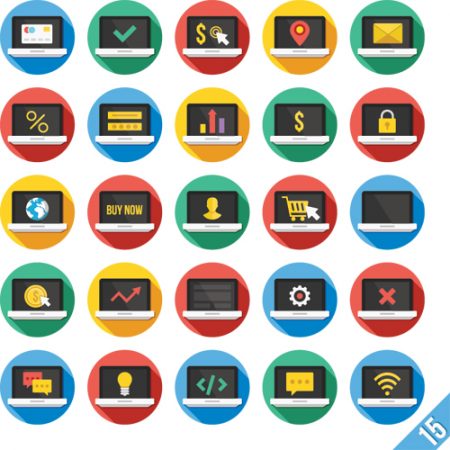The disruptive power of the App economy is changing the face of financial services. APIs have opened up a world of opportunity that new entrants are leveraging, overtaking a growing portion of the banking business. This is especially relevant in the areas of transactional payment services, financial advice, product comparison, and money management.
According to MuleSoft, a San Francisco based integration platform, a McKinsey research found that upward of 30 percent of the revenues of a typical European bank are at risk. In the UK, Google and Facebook are poised to provide financial services to British users. Ireland’s Central Bank is nearing approval of Facebook as an e-money institution enabling consumers to store money and make payments via its network. Facebook is also partnering with startups like Ripple operating in the area of international money transfer. Meanwhile since the launch of Checkout—which recently merged with Google Wallet—Google is collaborating with startups in the field of mobile payments, loyalty cards and comparison services.
And the competition doesn’t come only from Google and Facebook. “IT firms will redefine the financial industry”, affirms Forrester analyst Michael Facemire, “Through the integration of their numerous digital assets companies like Google could provide on-time financial information and opportunities to its users, and open its platform to financial operators seeking to reach consumers with their offerings.” Legacy banks are facing assaults from other giants like PayPal, Amazon, eBay and Twitter, which are already testing the financial market with some success. Particularly at the intersection of mobile payments with retail point-of-sale where Apple Pay for example is making significant inroads with more than 500 banks already enrolled. In Europe Fidor Bank, a Web 2.0 bank that leverages IT and the power of online communities to resolve the complexities and the cost of traditional banking, received approval from Germany regulators.
“In the future we will go from a few big banks to many smaller companies, this trend is welcomed also by regulators,” adds Facemire. Point in case? The U.K., here in 2014 regulators called for evidences about how an API’s open-system could benefit consumers allowing them to compare banks–and financial offerings–to one another.
Gianluca Brugnoli, research professor of Interaction Design and User Experience at the Politecnico di Milano (Italy), also believes “APIs accessible at population level may be bank’s only option to navigate this new ecosystem.” Brugnoli believes the development of mobile Apps–by the banks themselves and by third parties–operating within API’s area of general information, custom information and transaction, and mobile function leveraging, will greatly benefit consumers, putting at their fingertips information such as bank’s offerings in relation to account types, loan rates, CD rates, mortgages rates, credit cards, retirement accounts and other financial products.
APIs are being used to tailor information and transactions to the personal need of single costumers who can use banking apps for account balance, fund transfer, bill-pay, credit card payment, and security alerts. Furthermore taking advantage of mobile device’s functions, bank-provided APIs may facilitate the development of apps that using the camera, GPS services, and near field communication can enable banking operation such as payments, geolocation of branches, deposit and transfer of funds, and ATM operation validation.
Among APIs offered by banks to allow customers to shop for things like the most convenient loan or CD rate–or to promote financial products to customers of other industries such automotive, retirement planning, college planning, and real estate– Plaid, Price My Loan, Tripalti and BankImport are some examples of the most widely used.
To have a complete overlook of financial services APIs check out bbvaopen4u new infographic here.
However big the disruption threat may be, banks possess a wealth of transactional data that sets them apart from these new entrants. Brugnoli believes this data could enable retailers and service providers to understand the spending pattern of their clients, contributing eventually to the rise of new market channels and product offerings. The importance of APIs in this new ecosystem will be particularly disrupting of they target the integration of social networking functions with Big Data Analytics.
Some banks like the Royal Bank of Scotland and Spain’s BBVA are trailblazers having opened up aspects of their transactional Big Data to app developers willing to make this new model possible.
In 2013 Spain’s BBVA launched InnovaChallenge, a datathon to promote an open and collaborative relationship between the bank and the developer community. As Mark Boyd explained in an article published on programmable web in 2013, “the BBVA Innova Big Data Challenge makes big, non-identifiable financial transaction datasets available via an API to competitors, who are encouraged to draw on complementary data and other API products to create a consumer-facing, business, or public sector app, or to outline a web tool or data visualization that provides unique and creative insights into the data.”
Proving to be even more successful than the 2103 edition, the InnovaCallenge MX attracted 378 developers coming from 36 different countries. Fifty applicants made it to the final round. Relocation Assistant, an App developed by Spaniard Luca Chiarandini to allow users to choose the best neighborhood to live in, and Pear Campaigns –an App created by Spaniard developer Jordi Nin Guerrero to help inexperienced users to design effective geomarketing campaigns—won in the social and business categories respectively. Socio —a crowdsourcing app–and Optim—a leisure and travel App– won second and third place in the citizen category. Flux MX—an interactive transactional App—and App Data—an application to strategize business development—won second and third place respectively in the Business App category.
The winners shared 60,000 euros in prize money with 15,000 euros going to each of the winners in both categories. Second and third places in both categories received instead 10,000 and 5,000 euros, respectively.
“The results of these projects showed the value that entrepreneurs and developers can bring when a big corporation embraces innovation in a truly open manner,” commented Gustavo Vinacua, BBVA Innovation Center director, while unveiling the new contest.
If you are interested in the world of APIs, find out more about BBVA’s APIs here.










